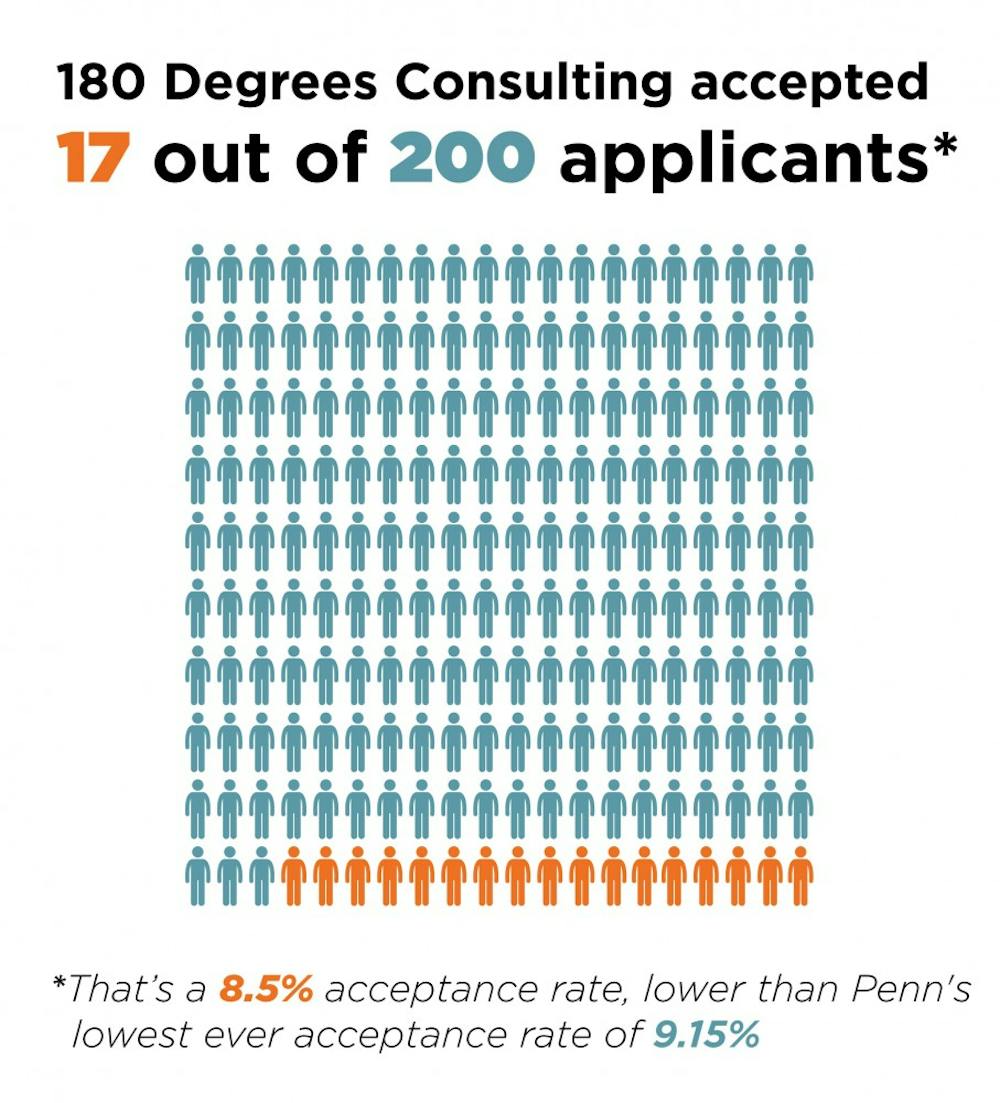
This Thursday, hundreds of students will gather on Locust Walk to attend the student activities fair. With over 450 student clubs at Penn, new students have a wide range of options to choose from, though chances are, they aren't going to be accepted by all the clubs they're interested in.
Penn's club culture has often been criticized as overly competitive. Undergraduate consulting and finance clubs can be particularly "daunting for freshman," said President of 180 Degrees Consulting Mark Rinder, who is a Wharton and College junior, though he also urged new students not to be intimidated by the intense application processes.
Wharton sophomore Ty Zhang, who is a member of the Wharton Investment and Trading Group, agreed, adding that "the barriers [to enter] are lower than they seem."
But the application processes and acceptance rates of these clubs suggest otherwise.
Last year, 180 Degrees Consulting accepted 17 people out of the 200 applicants, Rinder said. That is a 8.5 percent acceptance rate, which is lower than Penn's lowest-ever acceptance rate of 9.15 percent. Rinder added that he “imagine[s] that the numbers are similar” in other consulting clubs.

Most consulting clubs on campus follow a similar application process, said Wharton sophomore Gabe Ren, who is the vice president of internal affairs for 180 Degrees Consulting. It usually starts with a written application via Google form followed by several rounds of interviews. Applicants are typically cut after each round of the application process.
Some clubs also have teams or departments that are more competitive to get into than others. The Wharton Investment and Trading Group, which is one of the biggest investment clubs on campus, has around 1,000 members on its listserv, suggesting that its membership is less selective than other finance clubs. But in actuality, there are teams within the club that are far more selective than others, Zhang said. In fact, some teams within the club don't require an application, while others involve interviews, stock pitches and other technical assessments.
The Undergraduate Assembly and the Student Activities Council have recently partnered to make club recruitment a less stressful process. A survey from the UA in February found that the club recruitment process is characterized by students as competitive and discouraging. In March, SAC passed a series of guidelines designed to curtail the pressures of club recruitment. Their measures included banning clubs from asking for resumes from freshmen and limiting clubs to a maximum of two rounds of interviews.
And some clubs like 180 Degrees Consulting are also trying to help applicants have more success in a hyper-competitive recruitment process. They are holding an information session teaching applicants interview tips that can help them when applying to other clubs. 180 Degrees Consulting also plans to hold a party before the second round of interviews so that applicants are not so intimidated by the formal process.
Zhang said he thinks Penn’s pre-professional culture has caused investing and consulting clubs to “blow up in popularity." Many consulting or finance groups aim to prepare their members for the professional world, which students say is an attractive quality to many on Penn's campus.
Member of 180 Degrees Consulting and Wharton sophomore Andy Shao said the club usually has five to six clients per semester. Each client is assigned a team with one project leader and five consultants.
“Here with 180, I’ve worked with a foreign government, a Fortune-500 company and a small startup in North Carolina,” Shao said. “That kind of professional experience is very hard to get otherwise."
The Daily Pennsylvanian is an independent, student-run newspaper. Please consider making a donation to support the coverage that shapes the University. Your generosity ensures a future of strong journalism at Penn.
Donate






